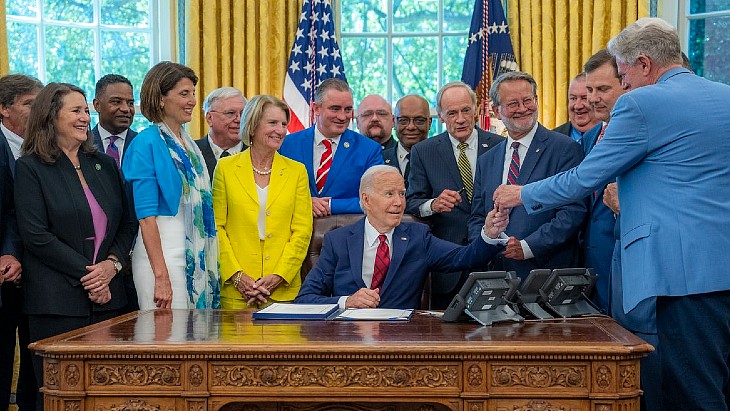 Municipal Affairs Minister Kaycee Madu speaks about the tabled legislation to empower municipalities to offer property tax incentives to business owners for machinery and equipment, at the legislature in Edmonton on Wednesday, Nov. 27, 2019.
Municipal Affairs Minister Kaycee Madu speaks about the tabled legislation to empower municipalities to offer property tax incentives to business owners for machinery and equipment, at the legislature in Edmonton on Wednesday, Nov. 27, 2019.
The proposal comes on the heels of legislation earlier this year that amended the Municipal Government Act to allow cities, towns and other municipalities to offer businesses a property tax break for up to 15 years. Bill 7, which came into force last June, would also allow towns to provide a lure to attract certain types of businesses — such as a restaurant or an auto repair shop — to open in a specific area.
“Business and industry stakeholders said this was a good change,” Municipal Affairs Minister Kaycee Madu said at the legislature Wednesday. “But they also said that expanding the tax incentives to include machinery and equipment taxes will be even better. We have listened, and now we are acting.”
Property classified as “machinery and equipment” includes manufacturing, processing, oil and gas pipelines, land used for excavation or transportation of oil or coal, telecommunications and electrical power systems.
There’s about $85 billion worth of land classified as machinery and equipment in Alberta, about 80 per cent of which is industrial land overseen by an energy regulator.
Right now, land assessed as machinery and equipment is not charged education property taxes.
Municipalities want choice
It would be up to municipalities if, when and how to use the tax abatement option to draw or keep industry nearby. The new rules give Alberta one of the longest possible windows of property tax relief in North America, the government said.
Saskatchewan allows property tax relief for up to five years and B.C. permits it for a decade.
Al Kemmere, president of the Rural Municipalities of Alberta, said it’s important the decision on whether or not to assume the risk of forgiving property taxes stays with local councils.
“We dealt with the property tax incentive issues here through the summer and I think our position is still that it’s enabling legislation,” Kemmere said. “As long as it remains enabling legislation, expanding it to include machinery and equipment I think is a kind of tightening up of the act that’s already been put through.”
Such a move could help expand a municipality’s tax base in the long-term, he said.
“We’re always concerned it could be a race to the bottom as far as taxation goes … when you start getting municipalities competing with other municipalities for the opportunity to have development,” he said.
Ken Kobly, president and CEO of the Alberta Chambers of Commerce, said in a government news release the bill should help municipalities attract investment and create jobs.







